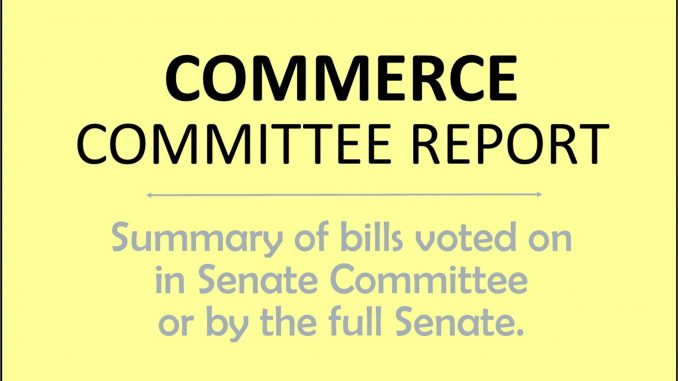
SF 1 – Administrative rules jobs impact statements
SF 176 – EDA technical update
SF 177 – Deferral of unpaid installments on certain consumer credit loans
COMMITTEE ACTION:
SF 1 requires that every proposed rule under a notice of intended action or publication without notice contain a jobs impact statement that outlines the purpose and statutory authority of the rule and analyzes and sets out in detail the impact of the proposed rule on state agencies, local governments, the public and regulated entities, including businesses and self-employed individuals affected by the rule. The statement must also determine whether a proposed rule would have a positive or negative impact on private sector jobs and employment opportunities. Before proposing a rule, an agency must take steps to minimize the adverse impact on jobs and new employment opportunities. An agency also must accept comments and information from stakeholders prior to the final jobs impact statement. The administrative rules coordinator may waive the jobs impact statement requirement for rules filed using emergency rulemaking procedures.
[1/31: short form]
SF 176 (SSB 1015) is a recommendation by the Iowa Economic Development Authority (EDA) that makes technical changes to eligibility for financial assistance from the sports tourism program by replacing the term “organization” with “entity.” It transfers responsibility for certifying targeted small businesses under the targeted small business procurement goal program (and associated reporting requirements) from the Department of Inspections & Appeals to the EDA, and specifies that EDA may establish standards for public access to information obtained under the program.
[1/31: short form]
SF 177 (SSB 1016) clarifies the Iowa Consumer Credit Code related to deferred payment on a closed-end, simple interest loan. Currently, the parties to a pre-computed consumer credit transaction may agree in writing to a partial or full deferral of any unpaid installments and the creditor may receive a deferral charge. The bill adds deferrals with respect to interest-bearing consumer credit transactions that are not pursuant to open-end credit arrangements, and other than consumer lease or consumer rental purchase agreements. The parties may agree in writing to a partial or full deferral of any unpaid installments in addition to any interest accrued pursuant to the terms of the transaction. The creditor may receive a deferral charge not to exceed $20 per differed installment.
[1/31: short form]
